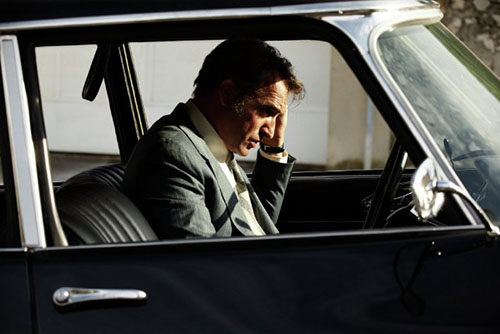Review: The Connection
 Whereas in many crime dramas the difference between the good guy and the bad guy is painted in black and white, writer and director Cedric Jimenez brings the more complex nature of both sides in the emotionally gripping movie The Connection. Based on the true story of French law enforcement's battle with the heroin-dependent drug traffic among France, New York and the rest of the world, this award-worthy film focuses more on the characterization of key players in the battle rather than rely on hyperviolence.
Whereas in many crime dramas the difference between the good guy and the bad guy is painted in black and white, writer and director Cedric Jimenez brings the more complex nature of both sides in the emotionally gripping movie The Connection. Based on the true story of French law enforcement's battle with the heroin-dependent drug traffic among France, New York and the rest of the world, this award-worthy film focuses more on the characterization of key players in the battle rather than rely on hyperviolence.
Despite his reluctance, French magistrate Pierre Michel (Jean Dujardin) is transferred from the juvenile to the organized crime division in the middle of mob wars in Marseilles, France. As a former gambling addict, Michel channels his obsessive nature into getting to the bottom of the complex network of drug lords, discovering that corruption exists at the top and around him.
The cornerstone to all the corruption is Gaëtan "Tany" Zampa (Gilles Lellouche), a racketeer who offers "protection" through the violent persuasive nature of his gang: Bimbo, Franky Manzoni (Moussa Maaskri), and Le Fou (Benoit Magimel). Zampa's expansion from prostitution and gambling into manufacturing and selling heroin places him at the top of the Marseilles crime scene, making him a target as well for the police and competitors.
The Connection boasts brilliant portrayals by both leading actors who are well matched in this heavyweight bout. The multi-dimensional characterization is fleshed out through their relationships with their families, colleagues and one another. The supporting cast members also bring their best to this film, especially Celine Sallette as wife Jacqueline Michel, who has seen the dark side of her husband's addictive behavior.
With a runtime of 135 minutes, The Connection could easily come across a bit lengthy were it not for a brief interlude to New York City where Michel is greeted as "The French Cowboy." While some may argue that associated scenes could be edited for a tighter story, the inclusion of this subplot demonstrates the international reach of the French Connection as well as the drug trade from other countries.
What is quite refreshing from Hollywood crime dramas is the lack of gratuitous sex and nudity as well as hyper violence throughout the film. The minimal display of these elements serve to amplify the most historical public event of this time when the graphic violence is displayed -- the "Bar du Telephone" massacre of October 3, 1978, when seven leading Marseilles gangsters and three innocent bystanders are gunned down in a cafe.
While serving as a thought-provoking companion to the oft-referenced William Friedkin's 1971 film The French Connection, The Connection stands on its own as a stylized film worthy of inclusion in any crime drama fan's video library. I highly recommend seeing this movie at a local theater soon. It opens in Austin this Friday, May 29.

